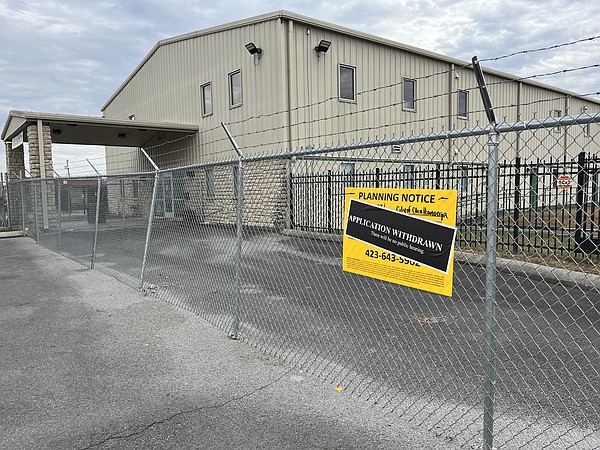It was a rumor many Chattanoogans had heard: the city offered such accommodating services that homeless people came to the city willingly.
The Chattanooga Regional Homeless Coalition obviously wanted to quell this rumor or prove it wasn’t true. So the agency and its partners conducted an informal survey of clients over the past three months to see if they had lived in the greater Chattanooga area for a year. or more.
More than 87% of the 1,226 people surveyed answered in the affirmative.
While this may have convinced agencies that a large influx of homeless people were not coming here for what they thought the city could offer, it may also have unintentionally indicated that there was not enough efforts to help local people on the brink of homelessness. , local people who already have connections here, local people who have probably already had a job here or local people who have had homes here in the past.
This isn’t necessarily the job of the homeless coalition, but it can say something to the city and its partners when it comes to prevention.
We are not naive enough to think that the city or any other partner can prevent every person from becoming homeless. After all, it’s the preferred step for some people, with or without mental health issues. But if the majority of local homeless people have ties to the Chattanooga area, just like preventive medicine, it would be better to find a way to prevent homelessness in the first place rather than having to deal with the problem once that it occurs.
At the forefront is the city’s proposal to transform a building on 12th Street into a low-barrier shelter, that is, a temporary facility that could have less stringent standards than other shelters. The city was moving toward a request to rezone the project, but recently put a pause on it after neighbors complained it would only attract more homeless people to the area.
Last week, in a news report announcing that the local Greyhound bus center at the aforementioned 12th Street building had been moved to Billy’s Truck Stop in Wildwood, Ga., Kevin Roig, a spokesman for the mayor of Chattanooga, Tim Kelly, appeared to indicate that the bus stop’s location and its proximity to homeless services were linked.
“The proximity of this location to existing homeless service providers is not conducive to the community or city’s desire to maintain a vigilant posture against the trafficking of homeless people sent here from other locations and showing up at the gates of Chattanooga,” he said.
However, the mayor and his spokesperson said in a separate news article a few days later that people were not intentionally bused here.
“The myth has become that people just arrive by bus,” Kelly said, “and we just don’t see it.”
“It’s not something that’s actively happening,” Roig said, “nor are we pretending that it’s a thing that’s actively happening.”
Figures from the homeless coalition indicate that of the more than 12 percent of people who came from elsewhere in the past three months, 33 came from Georgia (and primarily Atlanta), 16 from Florida, and 71 from various others States (with no other state having more than eight).
Officials who deal with homeless people have also made a distinction between homeless people and migrants, who may not be homeless but come to homeless service centers to get food or health care.
The Hamilton County Health Department, for example, only asks patients where they spent the night before treatment and their mailing address, according to Karen Guinn, the department’s director of homeless services.
The 12th Street building was constructed by the Southeast Tennessee Human Resources Agency in 2010, was later acquired by CARTA, and has remained largely unused for the past two years except as a bus stop for Greyhound.
The city, which owns the property but has not acquired the building, estimates the facility could accommodate up to 160 beds and temporary storage lockers for the homeless, and is well located near other homeless services and a police station.
However, homeless advocates and community residents differ on whether such a residency could be a step toward reducing the homeless population or attracting more of them.
City officials said they would continue to study the idea.
Meanwhile, it’s been more than two years since the Chattanooga City Council approved spending nearly $3 million to acquire the Airport Inn on Lee Highway to convert it into housing for those trying to find their way back . In January this year, the city council issued a tender for a developer to renovate the property and a service provider.
Given that the wheels of bureaucratic government turn slowly on these issues, we believe the idea of promoting homelessness prevention assistance up front has serious merit.
